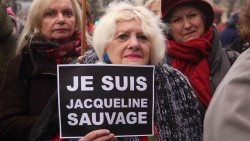
EU Court split on the ban on wearing a veil
On two pretty similar cases the EU Advocates General, Juliane Kokott and Eleanor Sharpston, have reached opposite conclusions.
While, in the former’s opinion in Case C-157/15 Samira Achbita and Centrum voor gelijkheid van kansen en voor racismebestrijding v G4S Secure Solutions NV, delivered on 31 May 2016, the AG took the point of view that there is no direct discrimination on the ground of religion where an employee of Muslim faith is banned from wearing an Islamic headscarf in the workplace, giving a great measure of discretion in the use of the proportionality test – but only if this ban is established on a general company rule prohibiting any visible symbols in the workplace. Indeed, she affirmed that:
“1) The fact that a female employee of Muslim faith is prohibited from wearing an Islamic headscarf at work does not constitute direct discrimination based on religion within the meaning of Article 2(2)(a) of Directive 2000/78/EC if that ban is founded on a general company rule prohibiting visible political, philosophical and religious symbols in the workplace and not on stereotypes or prejudice against one or more particular religions or against religious beliefs in general. That ban may, however, constitute indirect discrimination based on religion under Article 2(2)(b) of that directive.
2) Such discrimination may be justified in order to enforce a policy of religious and ideological neutrality pursued by the employer in the company concerned, in so far as the principle of proportionality is observed in that regard. In that connection, the following factors in particular must be taken into account:
-
the size and conspicuousness of the religious symbol,
-
the nature of the employee’s activity,
-
the context in which she has to perform that activity, and
-
the national identity of the Member State concerned.” (Para. 141).
In the latter’s opinion in Case C-188/15 Bougnaoui and ADDH v Micropole SA, delivered on 13 July 2016, took a much more restrictive view of the derogation provided by the Directive 2000/78, affirming that the ban on wearing a veil, in the case in question, amounted to direct discrimination on the ground of religion or belief, since:
“1) A rule laid down in the workplace regulations of an undertaking which prohibits employees of the undertaking from wearing religious signs or apparel when in contact with customers of the business involves direct discrimination on grounds of religion or belief, to which neither Article 4(1) of Council Directive 2000/78/EC of 27 November 2000 establishing a general framework for equal treatment in employment and occupation nor any of the other derogations from the prohibition of direct discrimination on grounds of religion or belief which that directive lays down applies. That is a fortiori the case when the rule in question applies to the wearing of the Islamic headscarf alone.
2) Where there is indirect discrimination on grounds of religion or belief, Article 2(2)(b)(i) of Directive 2000/78 should be construed so as to recognise that the interests of the employer’s business will constitute a legitimate aim for the purposes of that provision. Such discrimination is nevertheless justified only if it is proportionate to that aim.” (Para. 135).
Now, it will be up to the Judges of the Court to decide which interpretation of the Directive will be the most fitting. They will take into account the fact that the “veil issue” is not an easy one since it is part of a wider debate – not only – about multiculturalism but also on female equality, secular traditions and, now more than ever, fears of terrorism.
Salvis Juribus – Rivista di informazione giuridica
Ideatore, Coordinatore e Capo redazione avv. Giacomo Romano
Copyrights © 2015 – Salvis Juribus - ISSN 2464-9775
Redazione: redazione@salvisjuribus.it
Ufficio Risorse Umane: recruitment@salvisjuribus.it
Ufficio Commerciale: info@salvisjuribus.it
The following two tabs change content below.
Oreste Cirillo
Latest posts by Oreste Cirillo (see all)
- Case C-263/08. Which role for NGO’s? - 22 September 2016
- Principle of Subsidiarity. Is it working? - 20 July 2016
- EU Court split on the ban on wearing a veil - 19 July 2016









